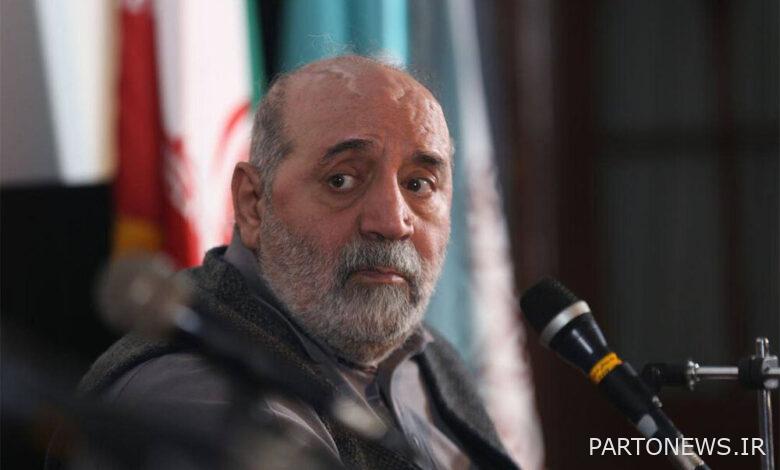I promised to make “Moses (pbuh)”, then I will die / Necessity of sending cinematographer to Gaza – Mehr News Agency | Iran and world’s news

Jamal Shoorjeh, an experienced director of cinema and television, who was previously supposed to be the director of the TV project “Moses”A)” and lost this opportunity due to illness, he told Mehr reporter about the negotiations he had with Ebrahim Hatamikia as the current director of this project: Ebrahim Hatamikia and I had general discussions in this field from the beginning and he even wanted to enter They got permission for the project. As far as I know, these days, the production team is busy with making sets, preparing clothes, and making studio arrangements.
Expressing his hope for the completion of the “Moses” project, he emphasized: “I thank Prophet Moses (A) I have made this promise to make this series first and then leave the world. I hope this happens in my lifetime.
Regarding the reasons for not repeating experiences like “33 Days” in the form of resistance cinema in Iran, Shurjeh said: These kinds of films are works that must be ordered from above. At the same time, Mr Shamkadari He was the vice president of cinema and Mr. Farabi Foundation Mir Alai It was responsible that they themselves had a hand in the fire of the cinema. The same thing should happen today, and managers should order some key works on topics such as Palestine, which are the topic of the day.
He added: Regarding the issue of Palestine, capable screenwriters such as Farhad Tawhidi or Habib Ahmadzadeh can be ordered to work so that the project can be properly keyed from the very beginning. when Screenwriter And when a reputable director comes to such works, others will follow. Today, Mohammad Khazaei should call cinema writers and talk to them about the priority of the Gaza issue. They can allocate a budget to this issue. Consultations can be done by the film organization with the relevant embassies so that the friends of the filmmakers can go to Palestine for further research. A group of experienced screenwriters can go to the field in the form of a research trip and find pure subjects.
Shurjeh continued: When I was making “33 days”, there was an initial subject and the story was written by Mr. Shamkadari wrote. Even today, we can use the capacity of the likes of Mr Shamkadari He used it to lead expedition groups to Palestine. In this war situation, cinematographers can be sent to the field to narrate untold stories about families involved in war or related operations.
This veteran director emphasized: These issues should not be stopped at the stage of calling and declaring support, and it is necessary to allocate an operational budget for it. In other topics such as Ashura or resistance, similar actions and plans can be made and the capacity of cinematographers such as Dawood Mirbagheri can be used to the maximum.
He added: I once went to Algeria for a film project. At that time, the deputy minister of Algeria had come to Iran and signed a letter of commitment with our deputy minister to produce a film about the glory of Algeria and with the presence of Iranian actors. I was selected for this job and when I went there I was faced with a script that was not very good. I hired screenwriters as consultants to revise the text. This type of work needs field follow-up.
In the end, Shoorjeh said about the young generation of filmmakers in Iranian cinema: Young filmmakers should stand next to veteran filmmakers so that they can enter the battle with the support of veterans. The young generation must enter different fields to hunt subjects themselves.

